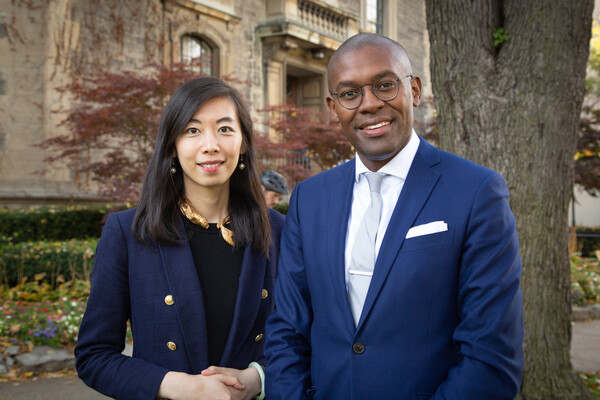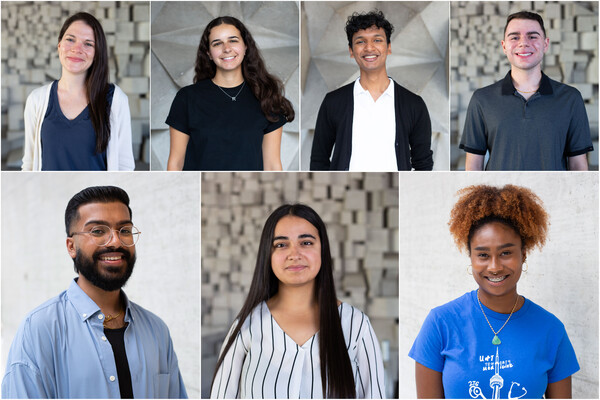Breadcrumbs
- Home
- MD/PhD Program
- News
- COVID-19 Central: Medical and Public Health Students Create Credible Information Hub
COVID-19 Central: Medical and Public Health Students Create Credible Information Hub
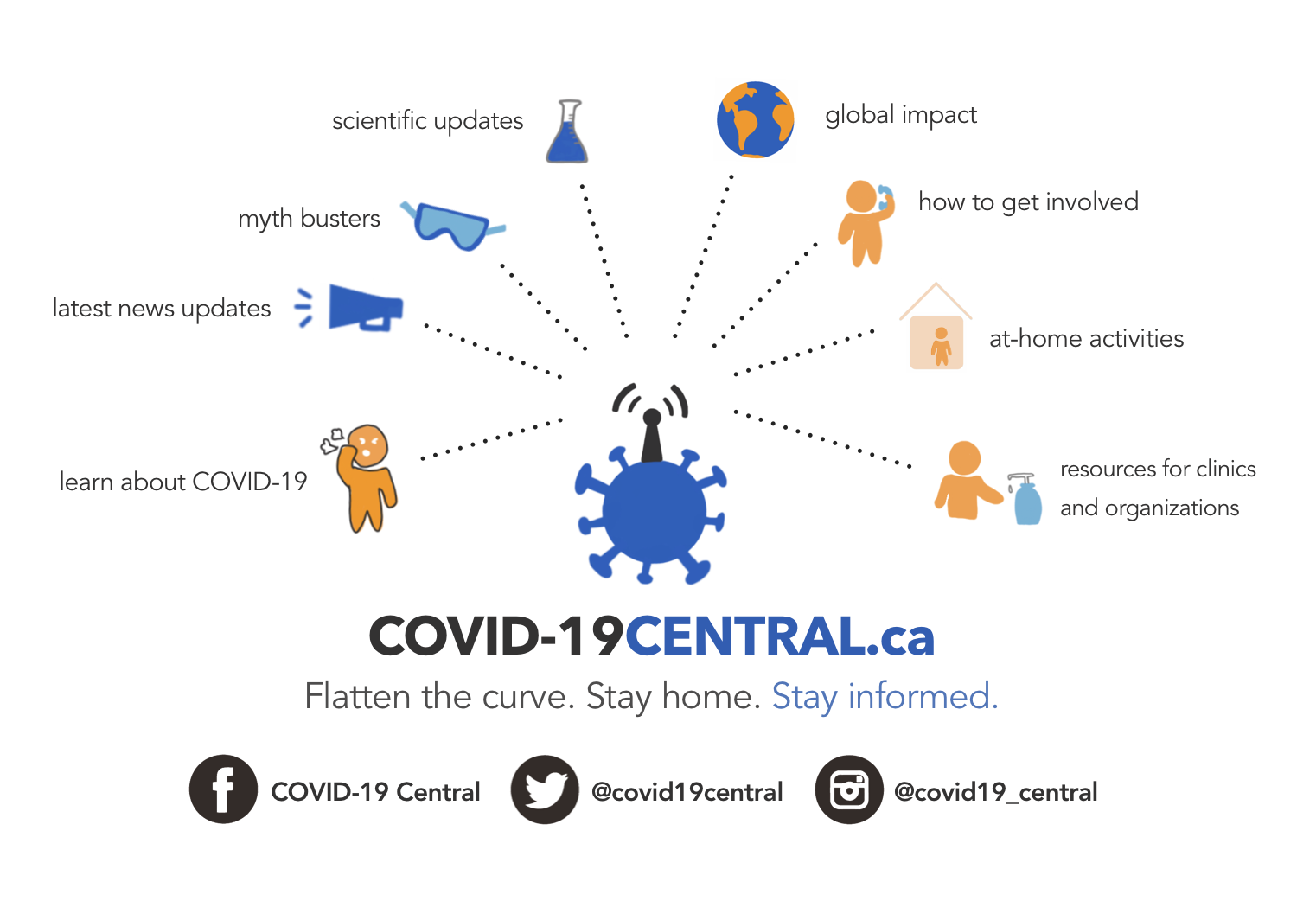
Julia Soudat
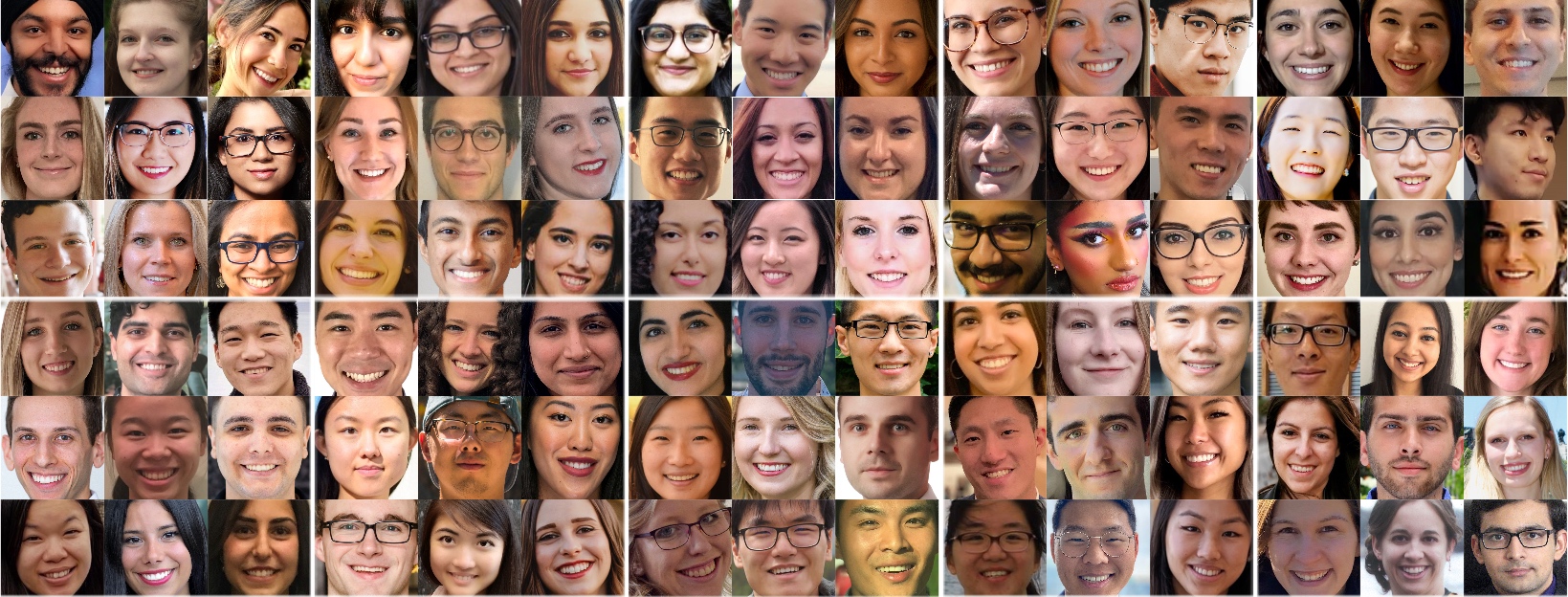 With new information about COVID-19 emerging on an hourly basis, trying to find credible information can be overwhelming. To help mitigate this, a group of medical and graduate students from across Canada got together to create COVID-19 Central – an online hub of accessible up-to-date information about the pandemic, put together by experts. University of Toronto MD students Lauren Beck, Yuliya Lytvyn and Andreea Damian caught up with writer Julia Soudat to talk about the initiative and what it takes to keep it updated and running smoothly.
With new information about COVID-19 emerging on an hourly basis, trying to find credible information can be overwhelming. To help mitigate this, a group of medical and graduate students from across Canada got together to create COVID-19 Central – an online hub of accessible up-to-date information about the pandemic, put together by experts. University of Toronto MD students Lauren Beck, Yuliya Lytvyn and Andreea Damian caught up with writer Julia Soudat to talk about the initiative and what it takes to keep it updated and running smoothly.
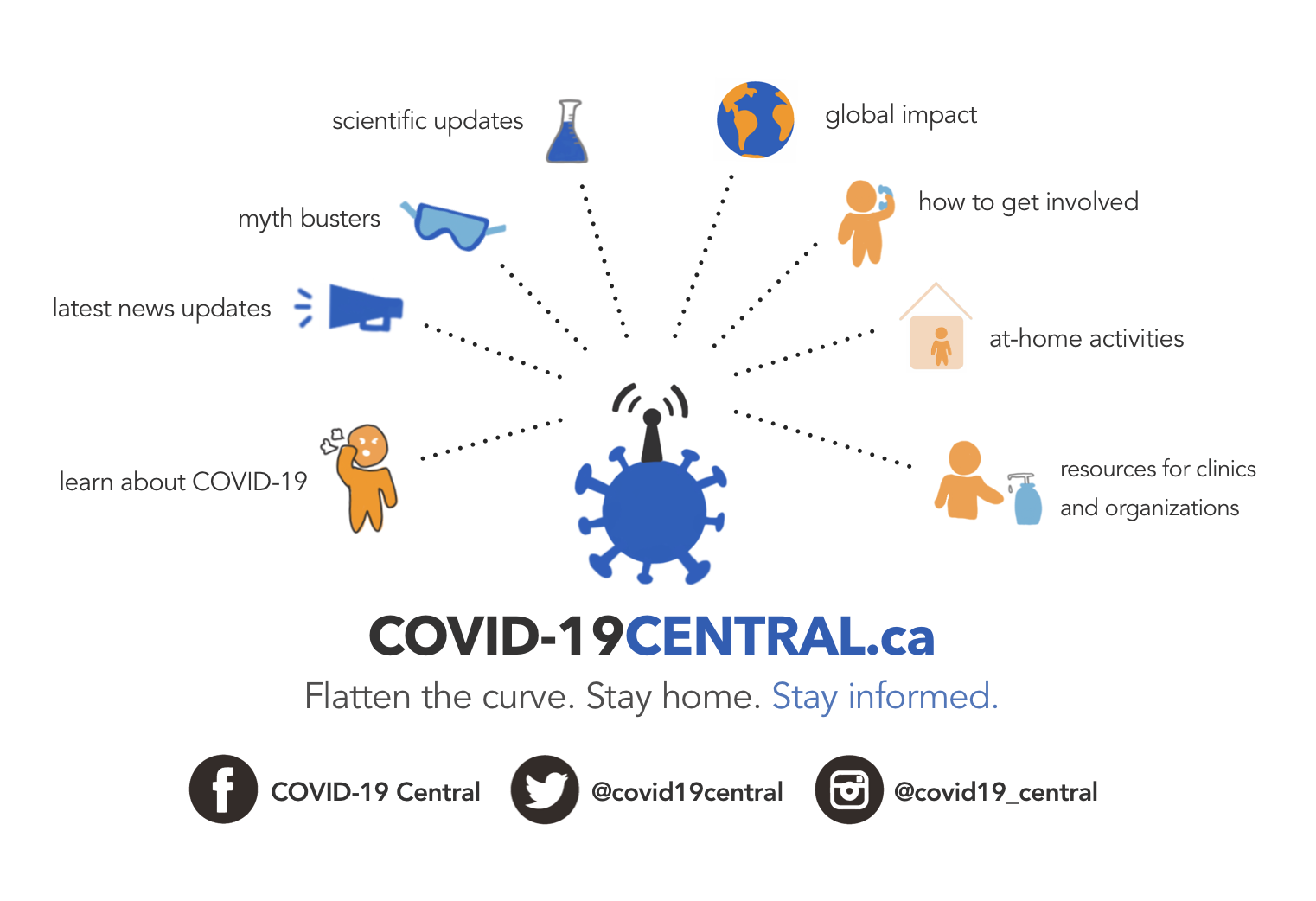 Tell me a bit about this project.
Tell me a bit about this project.
Friends and family were reaching out to us about everything COVID-19 related. While searching for daily updates and information on COVID-19, we noticed that there is no single resource center that collects credible information or lists all the aid initiatives available to the general public to utilize or get involved in. So, we set out to create this not-for-profit web-page and accomplish the following two goals:
1. Help the general public digest and keep track of all the latest guidelines, news, and scientific progress
2. Centralize all essential initiatives created by our communities so that they are accessible to everyone
Who is involved in this initiative?
We’re a rapidly expanding group of medical and graduate students from all around Canada with a common goal of keeping the public informed and providing credible resources. We have members from universities across Canada including McGill University, McMaster University, University of Ottawa, University of Manitoba and the University of Saskatchewan. Our members are in different years of their studies and are either pursuing a medical degree or a graduate degree in public health.
How do you stay on top of the most current information? How do you decide which sources to trust?
Through our academic training, many of us have learned how and where to look for credible information through online scientific search engines. These skills are highly utilized for our news, scientific progress, and mythbusters team. We’re also lucky to have a large network of physicians and faculty mentors who are working on the front-lines during the COVID-19 pandemic. They’ve helped curate a lot of our resources and content. So, using our literature review skills and our social connection networks, we make sure that we uncover and share credible information and resources that the public can trust.
You obviously have to work fast to keep the information and resources up-to-date as they change daily – sometimes hourly. What does this process look like?
We have an incredible team. They work hard to maintain up-to-date information. This requires a lot of commitment and organization from all of our team members. Each individual team is responsible for a specific part of the information hub, but most of our team members are constantly keeping their eyes and ears open for the latest resources or updates. Once new information is found, it gets summarized and sent to our “section leads” for checking every source to ensure reliability and relevance. Once the section leads accept the information, it gets placed on COVID-19 Central as a resource, link or post. Our site editors scan through all the newest site edits to triple-check that the information is credible and that the links we provide can take the user to the original sources in case they want to learn more. Through this organized process, we’re able to effectively share news and scientific updates daily and additional resources weekly.
What have been the greatest lessons learned so far?
This was our first endeavor in making a website and it has been nothing short of a steep learning curve – everything from creating the site to managing all the different teams that are involved. However, the greatest lesson we’ve learned was how to lay out a website and creating content that is accessible and easy to navigate for the average user.
In order to improve our information architecture, we spent a lot of time trying to understand what our users are searching for when they get to our site. After analysis and discussions with web design experts, we tried to implement better ways for our users to efficiently and effectively find the information they’re looking for. We hope to apply this experience and knowledge to our future practices as physicians, where we’ll need to listen and understand the needs of our patients and understand how we can help them best.
Biggest challenges?
One of our biggest challenges has been figuring out the balance between providing the public with a useful resource while being cognizant of the massive information overload that people are experiencing during this pandemic. One strategy that our team has used to mitigate this has been consistently posting relevant and useful information on our social media platforms on a schedule, so as to ensure we aren’t flooding people’s feeds. We have also made an active effort to share uplifting and positive stories and self-care strategies alongside the news and scientific updates to have a positive impact on those following our channels.
How has the response been?
The response has been phenomenal from a wide range of users. Students across Canada have been really eager to help and have suggested incredible improvements and expansions for the site. Family members and friends have been reaching out saying that they check COVID-19 central daily in the morning, much like the morning news. People have reached out asking if our team can investigate certain myths or scientific questions they have. Educational departments have asked to use our infographics in their webinars and presentations. Since we have such a broad audience, it is incredible to see how each of them have been responding and interacting with the content on our site in their own way.
If someone is interested in being part of this initiative, how can they get involved?
We are looking to recruit medical and graduate students across Canada who have an interest in helping us create and promote COVID-19 Central – whether they have experience in communications, website design, research, graphic design, etc. We are very interested in recruiting team members from other provinces to help us create province-specific content and promote our resource across Canada.
If you want to get involved and you’re in Ontario, you can apply here.
For those outside of Ontario, you can apply here.
News
